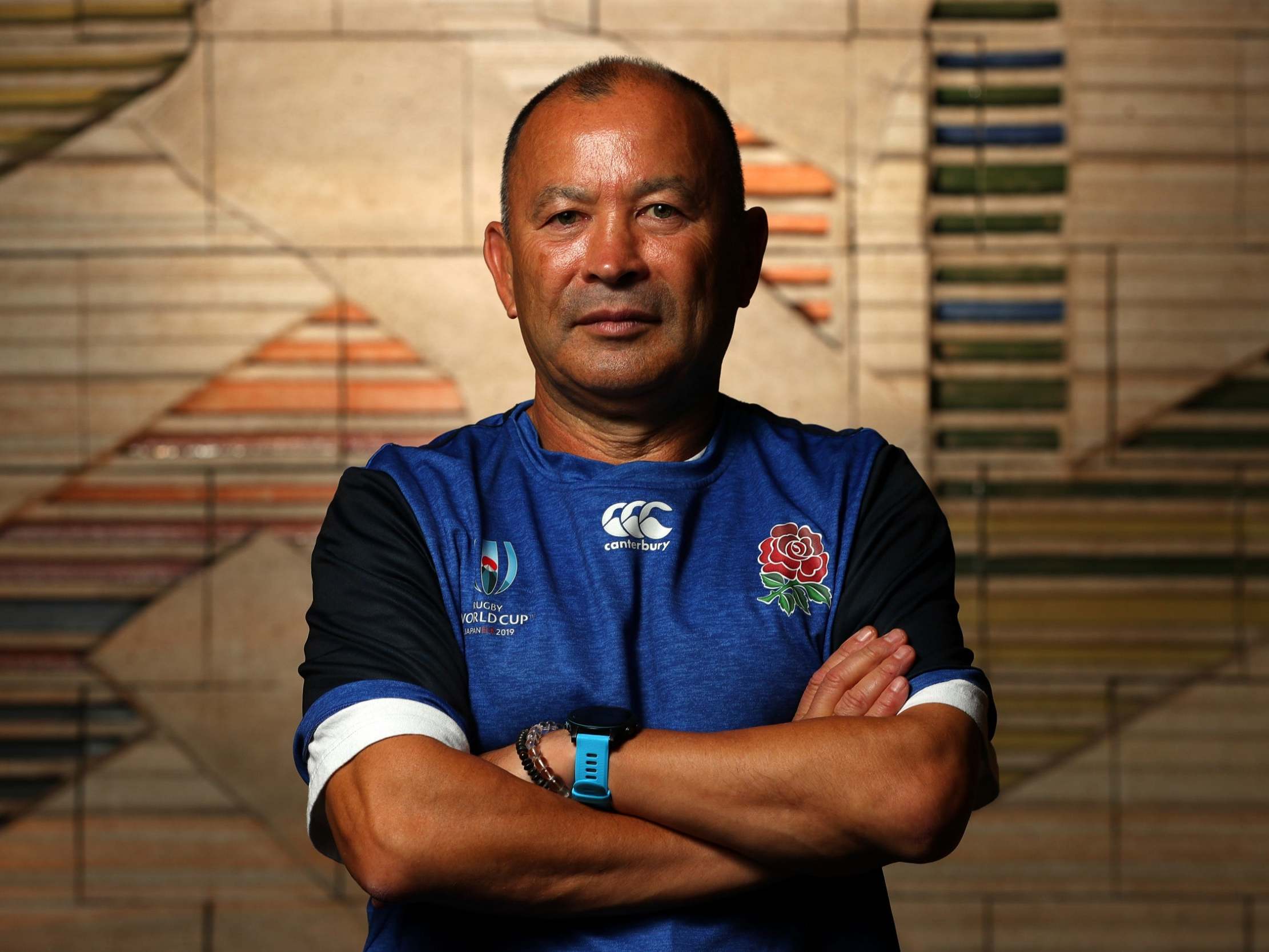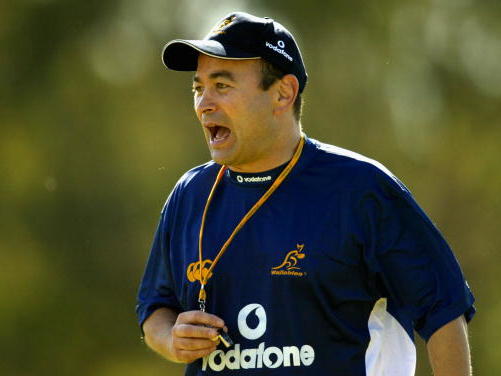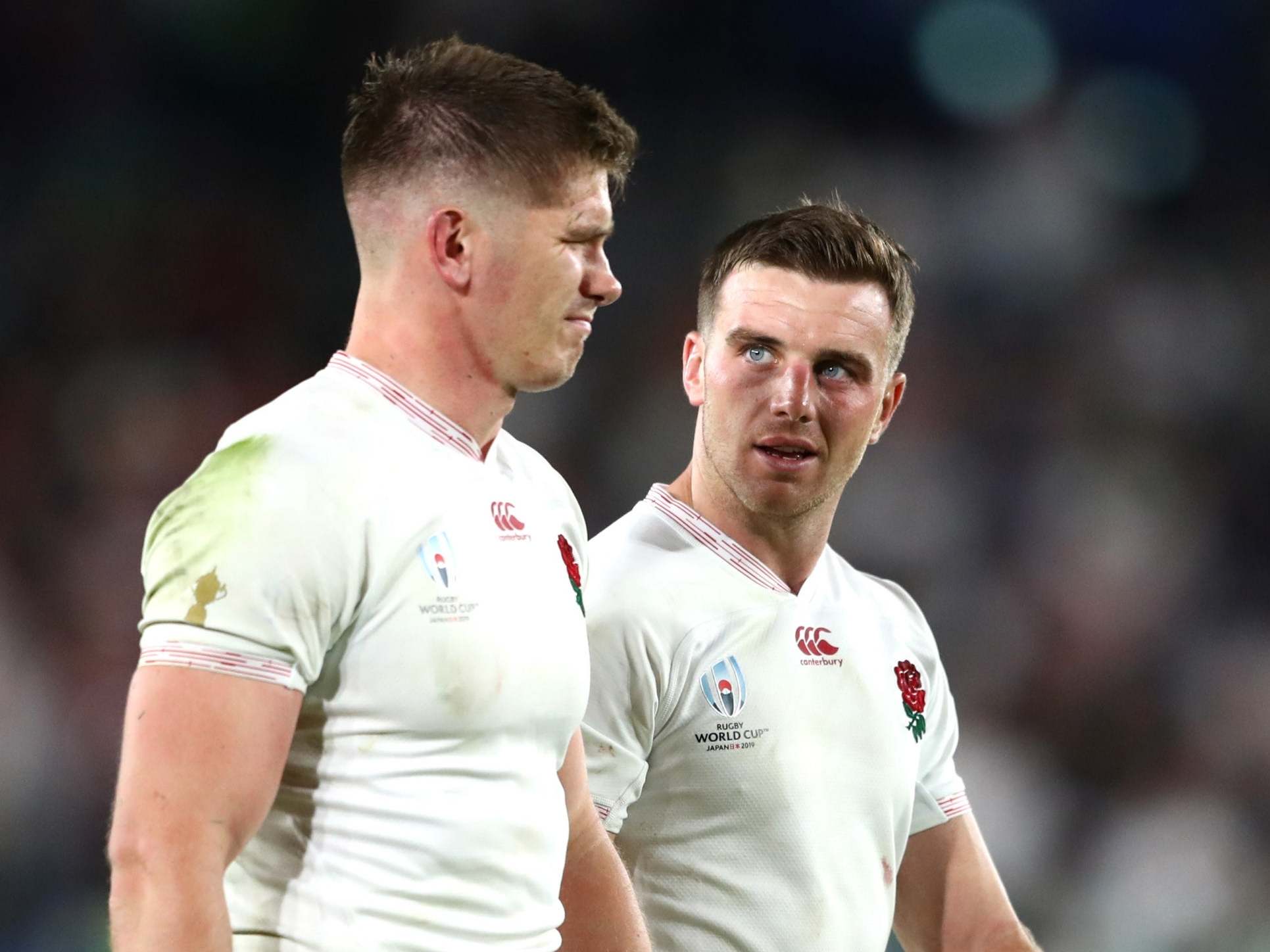Rugby World Cup 2019: England must embrace fear to fulfil their destiny against South Africa
Eddie Jones’ career has come to a type of full-circle since losing the final as Australia coach in 2003. Now, with an England side carved in his image, legacy awaits if they can conquer their nerves
What is fear? A feeling caused by many things, that can produce many results. An emotion that can stem from a person, an occasion or an unpleasant memory. But it can only occur in one place, a place that it consumes completely, and that is within the mind.
For many, the prospect of facing a gargantuan South African team in a Rugby World Cup final where every little mistake and error will be beamed around the world to millions, is enough to swallow the mind with fear: of failure, of personal humiliation, of letting your country down. On Saturday, fear will be the biggest opponent standing in the corner – the shadows as Eddie Jones likes to call it – and it will be down to each and every one of the 46 players named to play in Yokohama to conquer that emotion. The ones who don’t will be the team watching on as their opponents lift the Webb Ellis Cup; one of the worst feelings known in rugby union.
It is why Jones has told his players to go out and play Saturday’s World Cup final with “no fear”. The England head coach said ‘fear’ eight times on Thursday after announcing his side to face the Springboks, a team who can easily strike the fear of God into any human being, and it was left in little doubt the message that the 59-year-old has been drumming into his team this week.
It is because many players have frozen on the biggest stage in sport. Five times a World Cup final has been decided by nine points or fewer and tries come at a premium at this stage of the tournament – particularly when the Springboks are involved, given there has not been a single try scored in the two finals they have played and won.
With South Africa very much reverting to type in Japan and relying on their stereotypical direct style to get them to this stage, it will be very easy for England to fall into the trap of playing their way, which is why Jones is determined not to allow the fear to take hold of his side, but for them to embrace it. After all, the world will be watching.
“We will play with no fear,” said Jones. “How fantastic is it for the young bunch of guys we have? Every sporting person out there is looking at the game. It’s the biggest sporting event on at that time. Saturday night is the biggest sporting event in the world, and our players get to play in that arena.
“What an exciting opportunity for them to be themselves, to play with spirit, to play with pride and an English style of play. They have prepared for it and when you prepare for it you can do that – and we have prepared for it.
“They can inspire a whole country now, they can inspire a sporting community. That’s the opportunity they’ve got and all the messages that we’ve seen back in England at the moment is that there’s rugby fever going on. Now mums are telling kids “play rugby”, be the next Kyle Sinckler, be the next Ellis Genge, and that’s the opportunity they’ve got. It changes how the country feels about itself for a period of time – it might change at the next general election – but for a period of time it changes how people feel about themselves and that’s the greatest joy.”

Jones has done this before, of course. “If I look back at Japan and look at the growth of rugby in Japan from what we did in 2015, it’s spectacular. People in Japan love rugby now. They didn’t before, now they love the game. You’ve got this opportunity to change people’s lives through the ability to play rugby, and it’s a gift isn’t it?”
That wasn’t always the case for the steely Australian. This will be the third World Cup final of his career, with his record standing at one win, one defeat. The win came with South Africa 12 years ago against England in an advisory role that saw him achieve so much with the squad in such little time that they refused to wear their traditional green blazers when Jones was not given one, and organised for Bryan Habana’s to be flown to England for Jones to keep not long after.
But the defeat: who can forget the defeat? Not anyone of an English following, that’s for sure. The 2003 final to this day remains England’s greatest moment in rugby union history, which for Jones and his Wallabies team is one of the painful memories that comes with being a professional sportsman. What Jones didn’t see at the time though – and for a good few years after – was the effect those mental scars would have on him.
“I didn’t realise what an effect it had on me until possibly 2007,” recalled the former Australia head coach. “You think everything is alright but you lose a World Cup final and it’s a difficult experience. I’ve experienced both and I know the difference you feel and if you don’t reflect really well, which I didn’t after the 2003 World Cup, then you carry some things with you that aren’t always positive. They can be negative and they have an effect on how you approach your job.

“I think I was just too desperate to win and you can’t be desperate for things. You’ve got to have the will to prepare to win, that’s the difference and it takes time sometimes. After you lose a World Cup you want it to happen like that, because you want to get rid of that memory, but it doesn’t happen like that. You’ve got to work again and build it up. Sometimes you’re not as patient building it up.”
Fast-forward 12 years, a World Cup winners’ medal and 49 games as England head coach later, and Jones’s journey has come full circle – not in the definition that this is the end of it but in that if he was not ready for 2003, he is more than ready now. His side go into this final as favourites, having won every game so far, and have carved out a style that can come to define what this collection of 32 players stand for.
England rely on powerful, dominant rugby, not too dissimilar to what the Springboks possess, but they have the talent and natural athletic ability to create something special. It has taken time to implement, and many players have fallen by the wayside in the search for that style: Chris Robshaw and James Haskell have made way for Sam Underhill and Tom Curry, Manu Tuilagi has replaced Ben Te’o, even Dylan Hartley has seen the captaincy go to Owen Farrell. But finally, Jones has his ‘English style’ that has not existed at all for the last 16 years, and maybe not ever when you think back to what it really means to be an England rugby international.

“One of the best conversations I ever had was about two years ago with [former Manchester United manager] Louis van Gaal,” said Jones. “He explained it really simply. He said every coach has an idea of the way they want to play the game, so I want to play the game one way, then you get your squad, the cultural context of your squad and then you work out what shape you can play.
“I always had an idea of how I wanted to play, but it depends on the players you have. I wanted to develop a power style of rugby as England have tough, big players. It suited us to play a power style of rugby and we will be tested on Saturday as we are playing against the other most-powerful team in the world.”
In Jones’s mind the result is already made up. He believes in this team and they believe in him, and together they have managed to convince millions back home that their destiny is to beat the Boks. But they have not yet faced the fear, and only then will we see if they embrace it, or become the latest in a long line to be consumed by it.
Join our commenting forum
Join thought-provoking conversations, follow other Independent readers and see their replies
Comments
Bookmark popover
Removed from bookmarks